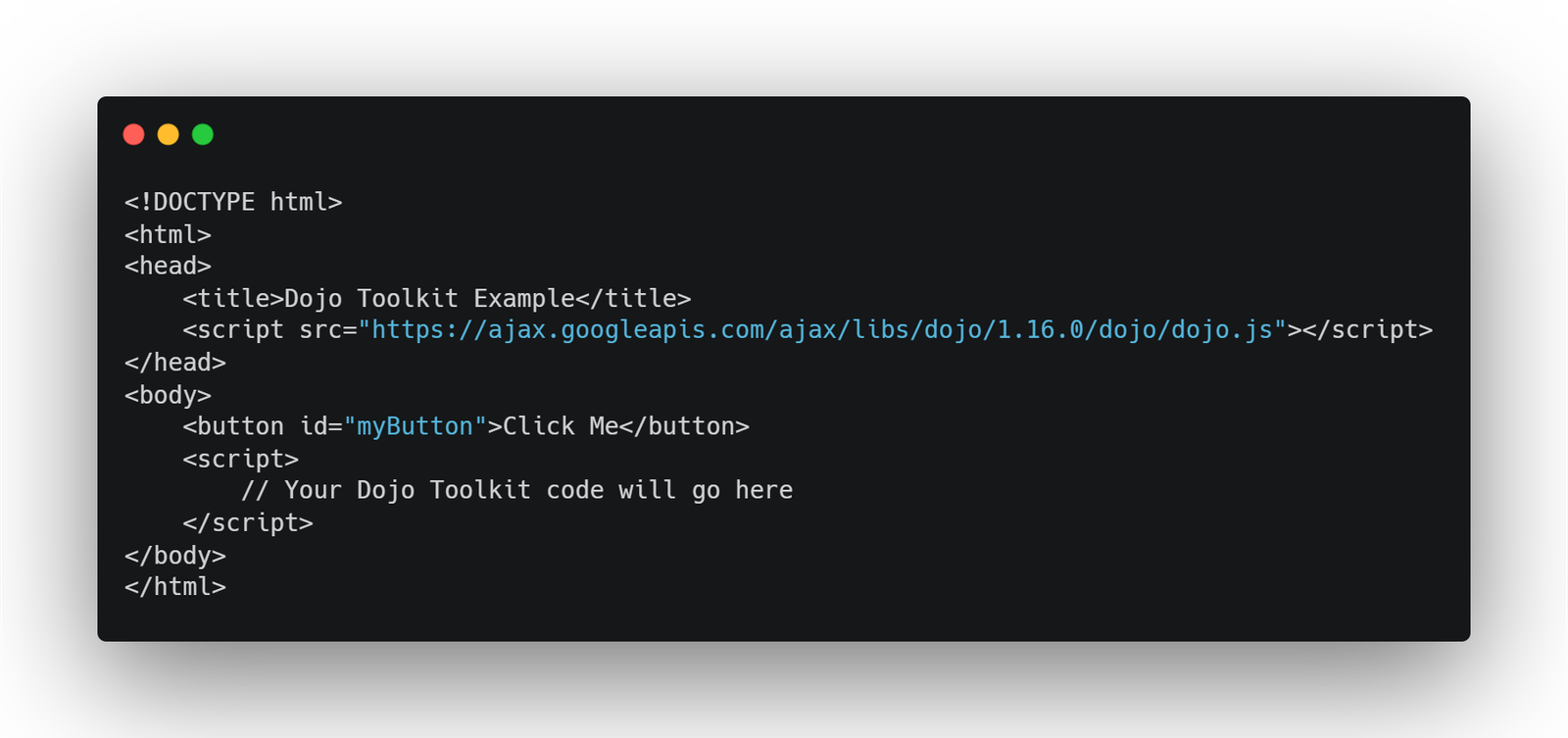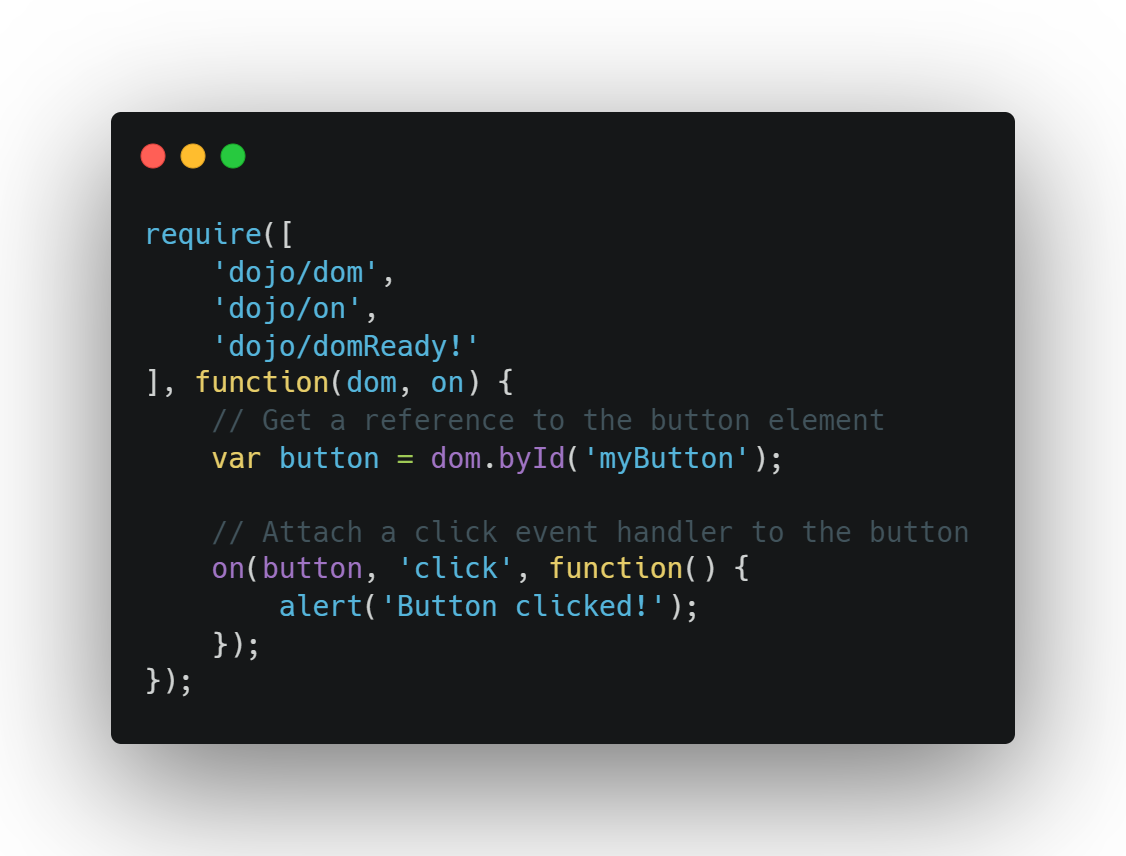Mastering Web Development: Harnessing the Dojo Toolkit Advantage in 2023
JavaScript, a pioneering programming language of our time, boasts a wide array of libraries that introduce simplicity and templates for web development and design. Among these, the Dojo Toolkit emerges as a DOM-oriented, open-source JavaScript library. It serves as a valuable resource for designing and customizing user interfaces across various browsers. The library’s modular approach is centered around the Document Object Model (DOM) and is engineered to run seamlessly across all browsers, without relying on browser-side runtime plugins.
Dojo Toolkit stands out as a flexible and robust modular framework based on AJAX (Asynchronous JavaScript and XML). Its primary purpose is to empower the development of web-based applications featuring rich user interfaces and an array of features.

Image by fullvector on Freepik
Getting Started with Dojo
Dojo is a free, open source JavaScript toolkit that makes web development easier. It provides many ready-to-use components so developers don’t have to write everything from scratch. Some of the things offers are:
- Widgets -prebuilt user interface components like calendars and grids
- DOM manipulation – tools for working with the DOM and web pages
- Ajax – utilities for building fast applications that talk to servers
- Internationalization – support for building apps in multiple languages
Moreover, it helps web developers build applications that work across different browsers and devices. Its design is modular, allowing you to utilize only the parts you require.
The JS Foundation manages the Dojo toolkit. It has been under development since 2004 and is used by many large companies like IBM and Cisco. The current version is Dojo 2.0 which was a major rewrite to modernize the codebase.
To get started with Dojo, you can include it from a CDN which hosts the files for you. Then you can begin using the widgets and utilities it provides to speed up building your JavaScript web app!
Understanding Dojo Toolkit
In the realm of web development, Dojo Toolkit fulfills client-side requirements on a large scale. It effectively bridges browser discrepancies, enabling websites to operate across multiple browsers through a single API address. Functioning as an open-source JavaScript framework, it offers a range of build tools to tailor a website’s CSS and JavaScript code for internal documentation purposes. A key feature of the framework lies in enhancing complex AJAX-based web applications with classes and rich user interfaces. An intriguing aspect of the toolkit library is its extensive collection of three thousand JavaScript modules and accompanying image resources.
A Look Back at its Inception
The Dojo Toolkit JavaScript library was initially introduced in 2005 by the Dojo Foundation. This non-profit organization was established to promote the Dojo Toolkit and its subsequent versions. The library’s inception in 2004 was spearheaded by Alex Russell, David Schontzler, and Dylan Schiemann. Notably, the JavaScript library held dual licenses under the Academic Free License and the modified BSD license for the past 16 years. Eventually, in 2016, it became part of the JS Foundation following collaboration with jQuery.
Dojo Toolkit Examples
First, include the Dojo Toolkit library in your HTML file. You can either download the library and host it yourself or use a content delivery network (CDN). Here, I’ll use the CDN approach:
Next, let’s use Dojo to handle the button click event. Add the following code inside the <script> tag:
n this example, we’re using the require function to load the necessary Dojo modules (dom, on) and then using those modules to get a reference to the button element and attach a click event handler to it. When you click the button, it will display an alert with the message “Button clicked!”
Key Appealing Features
Built on HTML markup, JavaScript code, and CSS styling, the Dojo Toolkit empowers the incorporation of diverse attributes and functionalities into AJAX-based web applications. This versatility allows applications to function across multiple browsers. The Dojo Toolkit library boasts several remarkable features, including:
Packaging System:
Dojo Toolkit offers a comprehensive packaging and sub-packaging system to modularize website functionalities. Leveraging its bootstrap utility function, Dojo Toolkit provides a package-based approach to establish hierarchical namespaces. This system facilitates efficient profiling across multiple files to define an entire package.
Seamless Communication:
An essential aspect of AJAX applications is maintaining asynchronous interaction between browsers and servers. This interaction enables seamless page presentation without reloading and facilitates data exchange. Dojo Toolkit streamlines the implementation of XMLHttpRequest across various browsers through an abstracted wrapper. This approach enables the server to detect user actions, ensuring timely replies through JavaScript coding.
Server-side Data Storage:
The introduction of Datastore implementation by Dojo data namespaces in the 2007 library version is noteworthy. These namespaces encompass Yahoo Store, Opml Store, and Delicious Store, providing access to various web services for fetching data.
Client-side Data Storage:
Dojo storage is a valuable attribute of the DOM-oriented Dojo Toolkit library, enabling local client-based storage for read and write operations involving cookies. This feature allows for the storage of substantial amounts of data with user consent. Compatibility with browsers such as Safari, Internet Explorer, and Firefox makes it accessible to a broader audience. The library’s predictability of stored information enhances its efficiency in web design.
Widgets within the Dojo Library
The Dojo Toolkit contains a versatile and potent open-source module, which divides into three major layers for AJAX software development:
- Dojo X: This module includes APIs and widgets, catering to the development of AJAX-based applications and their user interfaces.
- Dojo Core: Featuring an extensive range of attributes, Dojo Core enhances AJAX-based applications with functionalities, rather than traditional websites.
- Dijit: This component offers a diverse selection of themes and templates, elevating the design of AJAX applications to a visually appealing standard.
Conclusion
Dojo Toolkit, as an open-source modular JavaScript resource, empowers high-level attributes within AJAX applications. This innovation supports web developers in crafting intricate, user-friendly AJAX application interfaces. The integration of new attributes and classes directly into the coding process embodies progress in web development.



